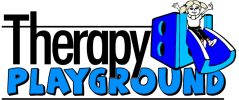https://youtu.be/haLRrUgBKso
Pediatric Oral-Motor/Feeding Therapy
Whether you are a parent challenged by your child’s difficulty with eating or a parent who has been told that your child may need therapy for a swallowing disorder, the Oral-Motor/Feeding Therapy Program at Therapy Playground can help. Therapists at Therapy Playground are specially trained in treating feeding and swallowing disorders in children. Treatment takes place in one-on-one sessions held in rooms with two-way mirrors which allow parents to observe the interaction between the therapist and their child.
Therapists in the program recognize the frustration felt by children’s parents, and are committed to listening, answering questions and working as a team. In addition to expert treatment in therapy sessions, they’ll give you practical techniques you can use at home to help manage your child’s swallowing or feeding problem.
Thorough Evaluation
Treatment for swallowing and feeding disorders begins with an initial evaluation conducted by a speech pathologist or occupational therapist specializing in pediatric dysphagia (swallowing disorders). The assessment includes a review of parent/caregiver concerns and the child’s medical/feeding history. An oral-mechanism examination is completed, and a small meal will be observed to obtain information regarding the child’s current diet, feeding behaviors, ability to manage oral intake, and the interaction between the child and the parent/caregiver.
Following the assessment, further evaluation may be recommended, which may include referral to a dietitian, lactation consultant, physician for additional medical management or to other therapists. Modified barium swallow studies are recommended when a patient presents with symptoms of pharyngeal swallowing disorder. This study is completed with a therapist and a radiologist. A video of the child’s swallow is obtained in order to identify pharyngeal swallowing dysfunctions. Following the modified barium study, appropriate treatment and diet recommendations are identified.
Comprehensive Treatment
A comprehensive, individualized treatment plan will be designed for the patient based upon the evaluation results. A multifaceted approach to feeding disorders is utilized which may include a variety of treatment techniques which may include:
An oral-motor approach is used for patients who have decreased oral strength, range of motion or coordination required for eating. This approach may also include treatment for pharyngeal swallowing disorders (deficits associated with the swallowing muscles). The focus of therapy is to strengthen and increase coordination of the muscles involved. A variety of exercises and treatment modalities including neuromuscular electrical stimulation is available.
A sensory-based approach is used for patients who have deficits in oral sensitivity. A patient may have hyposensitive or hypersensitive responses to food. Patients often gag easily, overstuff the mouth, or have texture aversion for touching or eating food.
A behavioral approach is used for patients who develop inappropriate mealtime behaviors as a result of negative eating experiences. These behaviors may occur secondary to oral-motor or sensory problems. Behaviors are often seen in children with feeding tubes, children who have suffered from gastroesophageal reflux, children with food allergies or a variety of other medical conditions.
For additional information about the Oral-Motor/Feeding Therapy Program at Therapy Playground or to schedule an appointment, call 910-423-5622. A physician referral is required to schedule an appointment.
Feeding and Swallowing Disorders in Children
Swallowing disorders, also called dysphagia (dis FAY juh), can occur at different stages in the swallowing process:
Oral phase – sucking, chewing, and moving food or liquid into the throat
Pharyngeal phase – triggering the swallow, movement or squeezing of food through the throat, and closing off the airway to prevent food or liquid from entering the airway (aspiration) or to prevent choking
Esophageal phase – relaxing and tightening the openings at the top and bottom of the tube leading to the stomach (esophagus) and squeezing food through the esophagus into the stomach
Causes of feeding and swallowing problems in children include:
- Nervous system disorders (cerebral palsy, meningitis, encephalopathy, etc.)
- Gastrointestinal conditions such as reflux
- Prematurity
- Heart disease
- Cleft lip or palate and other structural anomalies
- Oral-motor weakness
- Conditions affecting the airway
- Negative feeding experiences related to sensory integration disorder, food allergies/intolerances, etc.
Signs and symptoms of feeding and swallowing problems in children include:
- Arching or stiffening of the body during feeding
- Irritability or lack of alertness during feeding
- Failure to accept different textures of food
- Prolonged feeding times (more than 30 minutes)
- Excessive drooling or leaking food/liquid from the mouth
- Wet/gurgly, hoarse or breathy voice quality
- Coughing or gagging during meals
- Recurring pneumonia or respiratory infections
- Difficulty coordinating breathing with eating or drinking
- Frequent spitting-up
- Less than normal weight gain or growth
- Difficulty transitioning to age-appropriate methods of oral intake (bottle to cup, spoon feeding, self-feeding, etc.)
As a result of feeding and swallowing problems, children may have:
- Dehydration or poor nutrition
- Feeding tube dependency for nutrition/hydration
- Risk of aspiration (food or liquid entering the airway)
- Pneumonia or repeated upper respiratory infections that can lead to chronic lung disease
- Embarrassment or isolation in social situations involving eating
- Delayed communication skills
Modified Barium Swallow Studies
A modified barium swallow study is completed in conjunction with a radiologist in the Radiology Department. The purpose of the study is to assess the pharyngeal swallow anatomy and physiology. The study is completed using a variety of liquid consistencies and food consistencies; various positions or swallowing maneuvers may be introduced to see if there are positive effects on the swallow.
Frequently Asked Questions
What do I need to bring?
Parents need to bring food items for their children. When your exam is scheduled, the receptionist will provide detailed instructions.
Can my child take any of their regular medications?
Yes, all medications may be taken as usual.
Can my child eat or drink before the study?
We ask that children not eat three to four hours prior to the study so they will be hungry/thirsty for the exam. Your child does not have to have an empty stomach for accurate test results. If the child is upset because of hunger and will most likely not participate because of that, you may give your child a small snack. If your child is an infant, it would be best to give only a small amount of formula/milk prior to the test or the baby may not participate.
Can I hold my child during the exam?
No, the child sits in an age appropriate seat during the study. The parent typically will present the food/liquid to the child.
When will I know the results?
You will know the results upon completion of the study. The therapist will review the results and make recommendations at that time.
 |
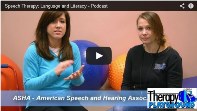 |
 |
 |
 |
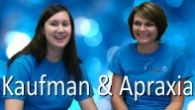 |
 |
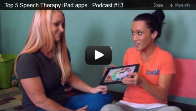 |
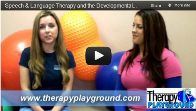 |
